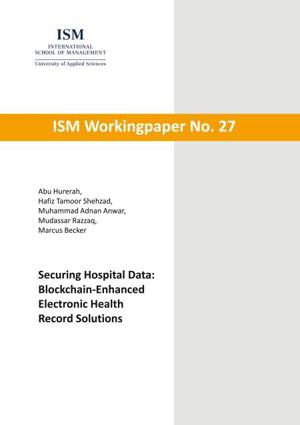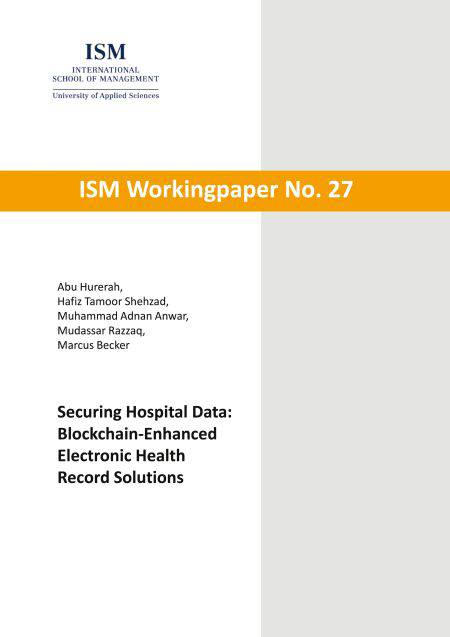
- Afhalen na 1 uur in een winkel met voorraad
- Gratis thuislevering in België vanaf € 30
- Ruim aanbod met 7 miljoen producten
- Afhalen na 1 uur in een winkel met voorraad
- Gratis thuislevering in België vanaf € 30
- Ruim aanbod met 7 miljoen producten
Zoeken
Securing Hospital Data: Blockchain-Enhanced Electronic Health Record Solutions E-BOOK
Abu Hurerah, Hafiz Tamoor Shehzad, Muhammad Adnan Anwar, Mudassar Razzaq, Marcus Becker
€ 6,99
+ 6 punten
Omschrijving
Managing electronic health records (EHRs) within hospitals presents significant challenges, particularly in ensuring the security, privacy, and accessibility of sensitive patient data. Traditional systems are often vulnerable to breaches and inefficiencies, demanding the need for exploration of innovative technologies. This paper proposes a blockchain-based electronic health records (BbEHR) system utilizing the Ethereum blockchain and Flutter framework to create a decentralized, immutable, and tamper-proof platform for hospital management. The Ethereum blockchain' smart contract functionality provides secure storage and guarantees data integrity, while the Flutter framework enables the development of responsive and visually appealing user interfaces across multiple devices. This decentralized approach enhances data privacy, accessibility, and system resilience against failures, offering a transformative solution for EHR management. The proposed system has the potential to secure healthcare data management by providing a secure, efficient, and user-friendly platform that meets the stringent requirements of modern healthcare institutions, adding the fact that introducing a BbEHR would minimize the danger of manipulating patient data due to its decentralized structure including unique cryptography methods for reaching consensus in each block of the chain.
Specificaties
Betrokkenen
- Auteur(s):
- Uitgeverij:
Inhoud
- Aantal bladzijden:
- 28
- Taal:
- Engels
- Reeks:
Eigenschappen
- Productcode (EAN):
- 9783769396164
- Verschijningsdatum:
- 2/02/2025
- Uitvoering:
- E-book
- Formaat:
- ePub

Alleen bij Standaard Boekhandel
+ 6 punten op je klantenkaart van Standaard Boekhandel
Beoordelingen
We publiceren alleen reviews die voldoen aan de voorwaarden voor reviews. Bekijk onze voorwaarden voor reviews.











